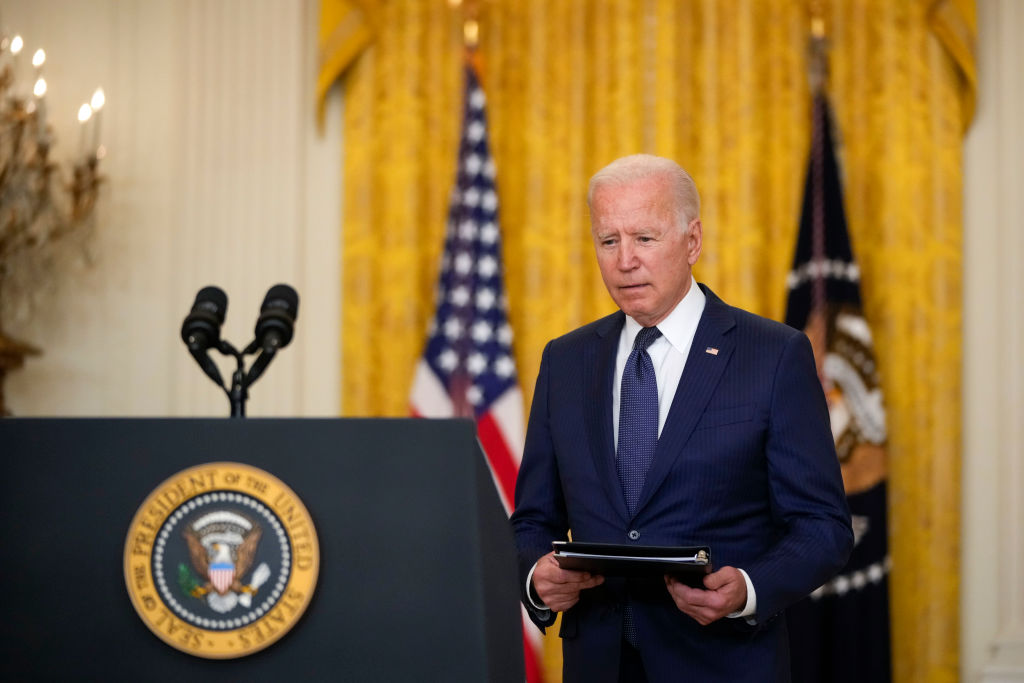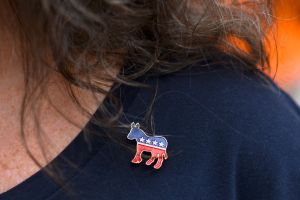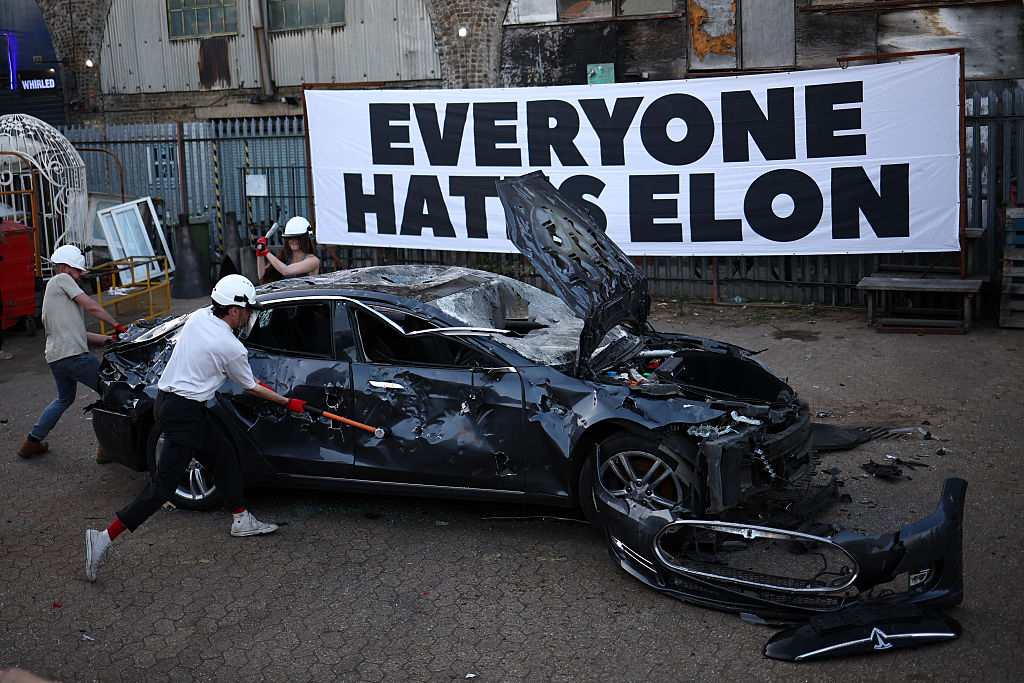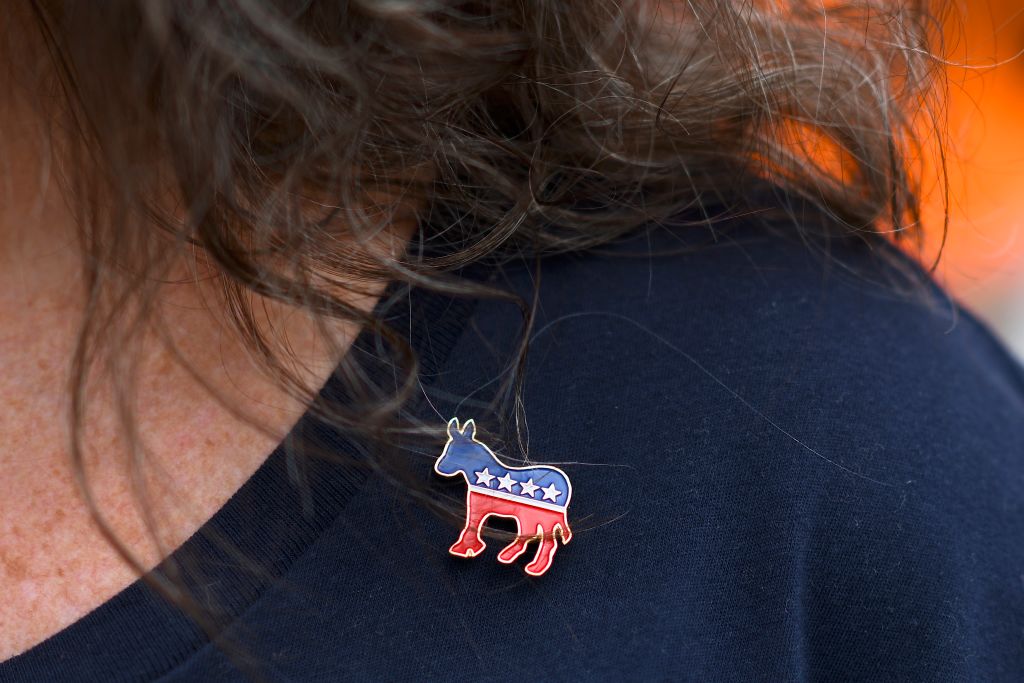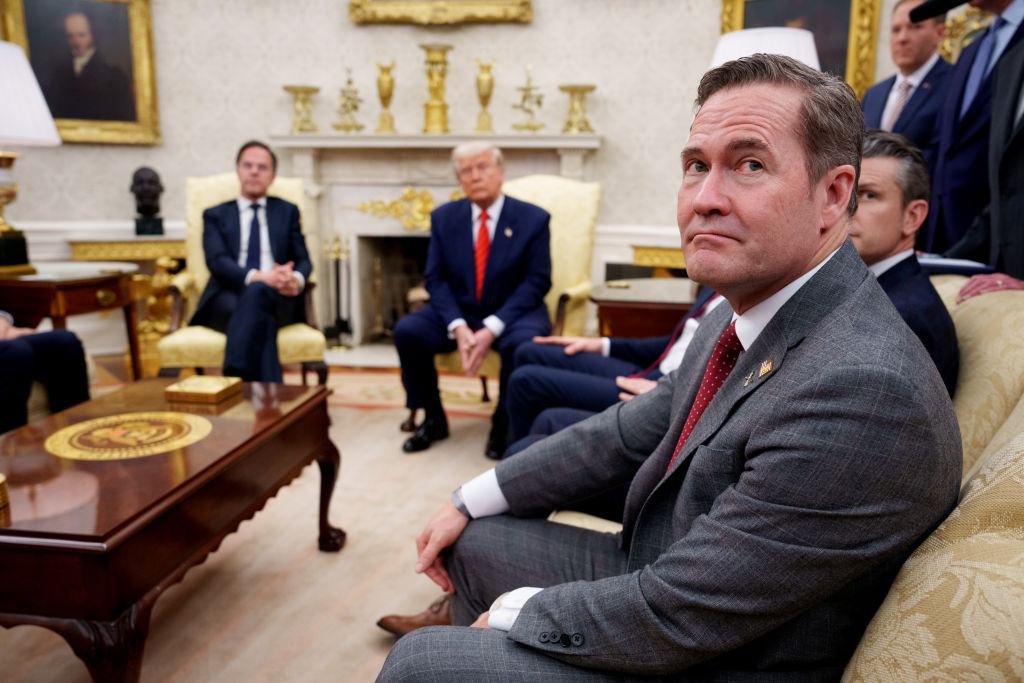Empathy won Joe Biden the White House, we were told. Indeed, as former Republican speechwriter Peter Wehner informed us, ‘In the entire history of American presidential campaigns, there may never have been a wider gap in empathy than between Donald Trump and Joe Biden.’ Sen. Chris Coons said Biden’s ‘ability to comfort and listen and connect with people who have just suffered the greatest loss of their lives’ is his ‘superpower’.
That fabled empathy hasn’t been much on display in the last two weeks, however. The President called the images coming out of Afghanistan during his disastrous withdrawal ‘heartbreaking’, but his own heart didn’t seem to be in it any time he said it.
Yet after a suicide bomber killed 13 American troops and hundreds of civilians at the Kabul airport Thursday, the nation might have expected — it certainly wanted — a statesman’s show of sensitivity. And Biden said he knew how the grieving families felt.
‘Being the father of an Army major who served for a year in Iraq and, before that, was in Kosovo as a US attorney for the better part of six months in the middle of a war — when he came home after a year in Iraq, he was diagnosed, like many, many coming home, with an aggressive and lethal cancer of the brain — who we lost,’ he said.
That’s from the White House transcript. I can’t be accused of misconstruing what Biden said: that ‘many, many coming home’ from duty were diagnosed with brain cancer. It wasn’t the only bizarre moment in a speech that might have salvaged Biden’s honor, just as it wasn’t the first time during the debacle that he tried to use his son Beau’s service to claim a credibility he no longer has, if he ever did.
‘The situation on the ground is still evolving,’ Biden said at the start. ‘Ladies and gentlemen, it was time to end a 20-year war,’ he intoned at the end. In between, the Commander-in-Chief lied (or perhaps misspoke), deflected and trotted out the same tired talking points he’d been using for more than a week as he addressed the deadliest day for American troops in Afghanistan in a decade and their first casualties since February 2020.
What he didn’t do, of course, was take any responsibility — or even admit he’d made a single mistake. Either would have comforted the grieving far more than his repetition of two weeks of non sequiturs.
I predicted, for example, that if Isis-Khorasan was held responsible for the suicide attack, Biden would repeat the line he’s repeated for days: Isis is the sworn enemy of the Taliban. What he doesn’t say is that the Taliban released Isis prisoners along with Taliban prisoners when they took control of the country. Nor did he address perhaps the biggest elephant in the room: To reach the airport, the suicide bomber had to have been let through a Taliban checkpoint. (The Pentagon later confirmed it.)
Knowing this, Biden had the gall to tell the country that he doesn’t trust the Taliban but is ‘counting on their self-interest’ to continue allowing Americans and their allies to get to the airport and leave Afghanistan. And he said it days after reporters on the ground revealed the terrorists were beating Afghans trying to get through checkpoints and wouldn’t allow passage to some the United States had agreed to evacuate. If he doesn’t trust the Taliban, moreover, why is his administration giving them the names of Americans and Afghans we want let through to the airport?
Biden did take questions — from reporters his team hand-picked. ‘Ladies and gentlemen, they gave me a list here. The first person I was instructed to call on was Kelly O’Donnell of NBC,’ he said, not hiding the fact, at a moment of great weakness, that he’s not in control.
That led to softballs such as this one from the Associated Press: ‘You have spoken again powerfully about your own son and the weight of these decisions. With that in mind — and also what you’ve said: that the longer we stay, the more likelihood that there would be a major attack — how do you weigh staying even one more day, considering what’s happened?’
But one non-vetted reporter did manage to get a question in. Biden had responded to AP with: ‘Because I think what America says matters.’ The unscreened reporter pointed to that and asked, ‘What do you say to the Afghans who helped troops, who may not be able to get out by August 31?’ In other words: what about keeping our promise to Afghan allies who worked and fought alongside us that they’d be brought to America?
Here Biden’s deflection — he blames Donald Trump at every opportunity for his own botched withdrawal — reached new heights. As ‘a student of history,’ he knows of no conflict in which ‘one side was able to guarantee that everyone that wanted to be extracted from that country would get out. And think about it, folks,’ he said. There are ‘millions of Afghani citizens who are not Taliban’ but didn’t work with America ‘who, if given a chance, they’d be onboard a plane tomorrow. It sounds ridiculous, but the vast majority of people in communities like that want to come to America, given a choice.’
I could go on. Biden spoke and took questions for not even half an hour, but he provided plenty of material. After noting the attack at the start of his speech, for example, he shifted quickly to touting his ‘evacuation effort unlike any seen in history’ and later said the military had evacuated 5,000 Americans on Thursday despite the attack; the State Department confirmed it was actually 500.
But I’ll end with what he ended with. ‘If Osama bin Laden, as well as al-Qaeda, had chosen to launch an attack — when they left Saudi Arabia — out of Yemen, would we have ever gone to Afghanistan?’
What a stupid question. Biden was trying to say America should have no quarrel with the Taliban, which aided and abetted al-Qaeda as it planned the 9/11 attacks. And let a suicide bomber carrying enough explosives to kill hundreds, if not more, reach the side of the Kabul airport the United States controls.
Biden told a grieving nation that he intended to continue ‘cooperation with the Taliban’ and admitted, without regret, that some people who should be in America will be left behind. There are many words one could use to describe such heartlessness in the face of his own failures. ‘Empathetic’ is not one of them.
Kelly Jane Torrance is the associate editorial page editor of the New York Post.



